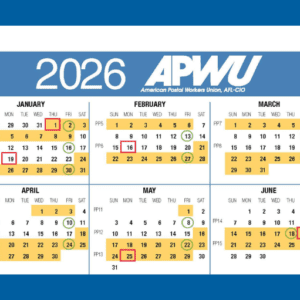January 1, 2017
Fighting for Justice: Elder Financial Abuse
(This article first appeared in the January-February 2017 issue of The American Postal Worker magazine.)
According to experts, financial fraud is the fastest growing form of elder abuse. “Financial elder abuse is when someone illegally or improperly uses a vulnerable senior’s money or other property,” explains Barbara Repa, legal writer and editor for Nolo.com. In many cases, the victim and his/her family does not know the crimes and/or abuse have occurred.
This is a personal issue for me. My aunt was a victim of financial abuse. The perpetrator entered her home and stole her passport, financial and personal records. He opened internet accounts in her name, used her bank and credit cards, and changed the addresses on her utility bills. He kept a notebook that listed her family members’ names, addresses and SSNs.
Our family did not find out about the theft until the police called to say they found her information and valuables with other neighbors’ burgled possessions. The police stated her passport and utility bills were valuable in order to steal her identity.
Identify Elder Financial Abuse
To protect yourself or your loved ones from elder financial abuse you must learn what it looks like, ways to prevent it and what to do if you suspect that you or a family member are targeted.
Seniors who live alone, or with another senior, can become targets. Perpetrators could be anyone from strangers, to family members, friends, acquaintances or neighbors.
How do you know if a senior in your life is vulnerable to financial abuse? The following factors increase the chances of being victimized, says The National Committee for the Prevention of Elder Abuse (NCPEA):
- Isolation,
- Loneliness,
- Recent Loss,
- Physical or mental disabilities,
- Lack of familiarity with financial matters,
- Have a family member(s) who are unemployed and/or have substance abuse problems.
Start by protecting and securing any mail or documents containing your personal identifying information, for example, your passport, Social Security card, birth certificate, tax information, etc. Each month these documents should be stored away in a safe, out of sight, location.
Do not hide the documents from yourself! Make sure someone in your family knows your monthly routine for handling these documents. Also, use a shredder when you throw away mail or other documents containing personal identifying information. Even your recycling bin is not safe.
Warning Signs
Learn the warning signs of elder financial abuse in order to protect yourself or a loved one. Knowing the indicators can prevent abuse, but some can be explained by other causes, and no single clue is proof. Look for patterns suggesting a problem.
According to the NCPEA, indicators include:
- Unpaid bills, eviction notices, or notices to discontinue utilities,
- Unexplainable withdrawals from bank accounts or transfers between accounts,
- Bank statements and canceled checks no longer come to the house,
- New “best friends,”
- Legal documents, such as power of attorney, and/or checks the senior does not remember signing,
- The care of the senior is not commensurate with the size of his/her estate,
- A caregiver expresses excessive interest in the amount of money being spent on the senior,
- Belongings or property are missing,
- Lack of documentation about financial arrangements,
- Implausible explanations about the elderly person’s finances given by the senior or caregiver,
- The senior is unaware of or does not understand the financial arrangements made for him/her.
If you think you or a loved one is a victim of elder financial abuse, do not hesitate to learn more. Visit the site www.preventelderabuse.org, to learn what steps you can take. 4
Resources: The National Committee for the Prevention of Elder Abuse (NCPEA), Forbes.com, and NOLO.com.


